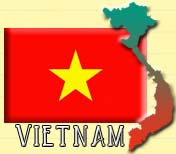Thai protests may slow reforms in Vietnam
 Hanoi - The protests that forced the cancellation of the ASEAN summit in Thailand last weekend will likely lead Vietnam to move slower on political liberalization, experts said Monday. "Thailand used to be one of the democratic models for Vietnam, but these incidents in Thailand certainly will make Vietnamese leaders more cautious about democracy," said Professor Trinh Duy Luan, director of Vietnam's Institute for Social Studies.
Hanoi - The protests that forced the cancellation of the ASEAN summit in Thailand last weekend will likely lead Vietnam to move slower on political liberalization, experts said Monday. "Thailand used to be one of the democratic models for Vietnam, but these incidents in Thailand certainly will make Vietnamese leaders more cautious about democracy," said Professor Trinh Duy Luan, director of Vietnam's Institute for Social Studies.
Officially, Vietnam's government expressed "regret" over the postponement of the ASEAN summit. The meeting of South-east Asian and regional leaders was called off Sunday after tens of thousands of red-shirted protestors stormed the conference venues, demanding the resignation of Thailand's government.
"In our view, this is a regrettable event, affecting not only Thailand's image but ASEAN's process of cooperation," said Nguyen Hong Cuong, director of the ASEAN Department at Vietnam's Ministry of Foreign Affairs.
Cuong noted that several agreements on ASEAN cooperation scheduled to be adopted at the summit had been postponed.
The state-run newspaper Vietnam News reported Monday that Prime Minister Nguyen Tan Dung hoped that "political stability" would soon return to Thailand, for the sake of its national development its responsibilities as rotating chair of ASEAN.
But some analysts said the repercussions of Thailand's demonstrations were likely to slow moves in Communist Vietnam to allow greater freedom of organization and more room for civil society groups.
For several years, the country's National Assembly has debated reforms to the national Law on Associations, which regulates the formation of any kind of civic group. Under current law, all such groups must be affiliated with a government agency or government-chartered "mass organization," such as the Women's Union or the Union of Science and Technology Associations.
The system makes it easy for the Communist Party to ensure civic groups do not challenge its political power.
Carlyle Thayer, a Vietnam expert at the Australian Defence Force Academy, said Vietnamese leaders opposed to liberalization would use the Thai unrest to support strong single-party rule.
"Like any instability in the former Soviet Union and Yugoslavia, Vietnamese television will show that violence extensively," Thayer said. "The subtext is 'This is what you get when you have a multiparty democracy.'"
Vietnamese television news has been running footage of the protests in Thailand since they began over the weekend.
Nguyen Tran Bat, chairman of the Vietnamese consulting firm InvestConsult, agreed that moves to broaden civil society in Vietnam would be limited.
"Vietnam will allow people to have more rights, but in order to facilitate leadership, it will not consider them as natural rights," Bat said. "The concept of what democracy is will certainly be considered more cautiously by Vietnamese leaders." (dpa)